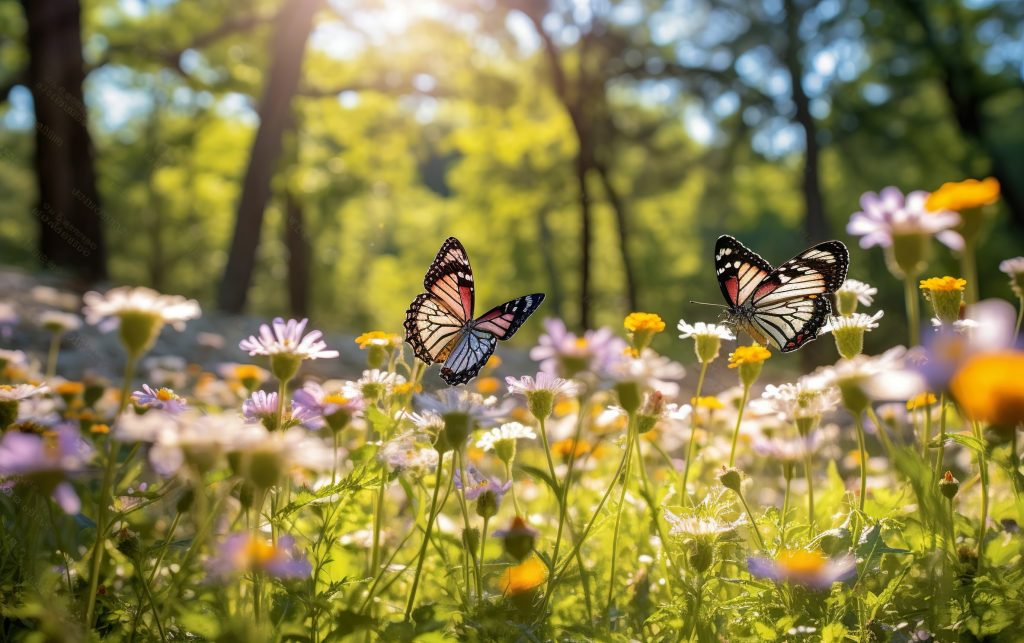Tag: biodiversity
CyberHER: Bridging the gender gap in cybersecurity

The CyberHER: Bridging the Gender Gap in Cybersecurity project, led by Dr Mohammad Haseeb Zafar, director of the Cybersecurity and Information Networks Centre at Cardiff Metropolitan University, UK, colleague Dr Fiona Carroll, and Dr Sumaira Johar of the Institute of Management Sciences (IMSciences), Peshawar, Pakistan, addresses the global gender gap in cybersecurity. By promoting cybersecurity awareness for women, international collaboration, […]
Read More… from CyberHER: Bridging the gender gap in cybersecurity
Ecology in our cities: Why urban biodiversity matters

In the UK, conservation charity Plantlife runs an annual campaign to raise awareness of the detrimental effects of excessive lawnmowing. A perfectly manicured lawn may have once been something to be proud of, but keeping grasses cut down is deleterious to the environment. This year, the ‘No Mow May’ campaign reached even more people than in previous years, and helped […]
Read More… from Ecology in our cities: Why urban biodiversity matters
Ecology in our cities: Why urban biodiversity matters

In the UK, conservation charity Plantlife runs an annual campaign to raise awareness of the detrimental effects of excessive lawnmowing. A perfectly manicured lawn may have once been something to be proud of, but keeping grasses cut down is deleterious to the environment. This year, the ‘No Mow May’ campaign reached even more people than in previous years, and helped […]
Read More… from Ecology in our cities: Why urban biodiversity matters
Do phytoplankton hold the key to the evolution of marine biodiversity?

Life exploded in our oceans 250 million years ago, leading to the biodiversity that we see today. Before this point, however, the plant and animal life in our seas was considerably less diverse. Several theories have been proffered to explain this – often considering both habitat and climate changes – but very few studies have considered the role of phytoplankton. […]
Read More… from Do phytoplankton hold the key to the evolution of marine biodiversity?
A transdisciplinary approach to restoring London’s river Thames

Despite being one of the world’s most iconic rivers, the Thames faces many ecological challenges, and its health has deteriorated severely over recent decades. Martin Richardson from Royal Holloway, University of London, believes that an additional problem is the singular focus of existing research into those challenges. He also believes that a better, more sustainable Thames is possible. In a […]
Read More… from A transdisciplinary approach to restoring London’s river Thames
Accounting for biogeographical ignorance within biodiversity modelling

Biodiversity data can be analysed to predict species distribution at various scales of time and space. However, survey completeness and temporal decay in data quality introduce uncertainty into biodiversity models. Researchers Joaquín Hortal, Juliana Stropp (National Museum of Natural Sciences, Spain), Richard Ladle (University of Porto, Portugal), and Geiziane Tessarolo (State University of Goiás, Brazil), among others, are constructing the […]
Read More… from Accounting for biogeographical ignorance within biodiversity modelling
The biodegrading functions of microbial communities in polluted freshwaters

Pollution is a selective pressure that enriches microorganisms at polluted freshwater sites. Some microbial species can adapt to the levels of pollution in water streams, displaying metabolic capacities that allow them to degrade the contaminants. Dr Ayixon Sánchez-Reyes and Dr Luz Bretón-Deval, from the Institute of Biotechnology of the National Autonomous University of Mexico, study the microbial biodiversity landscapes of […]
Read More… from The biodegrading functions of microbial communities in polluted freshwaters
Ecuadorian essential oils: Ancestral knowledge meets scientific research

Ecuador has one of the highest biodiversity indices, but also one of the world’s highest rates of deforestation. New reforms and scientific research are needed to safeguard its biodiversity, which not only provides climate-balancing carbon capture but a world of natural medicines. Professors Paco Noriega and José Luis Ballesteros of the Universidad Politécnica Salesiana, in Quito-Ecuador, are leading research to […]
Read More… from Ecuadorian essential oils: Ancestral knowledge meets scientific research
The Orangutan Project: How a successful not-for-profit organisation is working to protect Critically Endangered orangutans from extinction

The Orangutan Project was founded in 1998 by orangutan expert and conservationist Leif Cocks. Today, it takes a multifaceted approach to conservation, targeting the key threats facing the Critically Endangered orangutan population. Leif Cocks told us about the vital work of the Project, and about his own ethics which underpin the conservation work. Orangutans are facing an existential threat. As vast tracts […]
How to change the world: COMPASS on science and effective communication

Scientists have information that can help us solve complex problems that threaten us all, such as climate change and biodiversity loss. COMPASS is a non-profit organisation which believes that strategic communication is critical for a future in which both people and nature survive and thrive. Executive Director Amanda Stanley told Research Outreach how they are building a cross-discipline community of […]
Read More… from How to change the world: COMPASS on science and effective communication